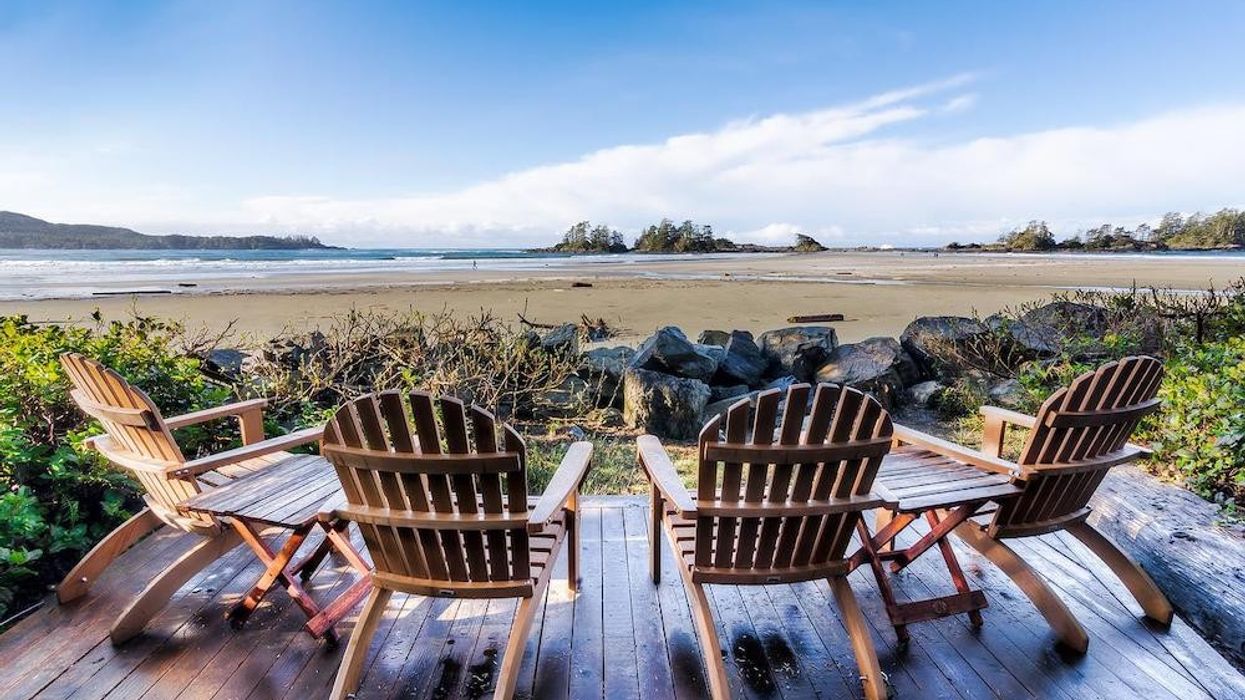With its picture-perfect appeal and abundant outdoor activities, British Columbia (BC) has always been a popular choice of location for a recreational property in Canada.
The province’s recreational property market is one characterized by thriving demand, multiple offers, limited inventory, and -- naturally -- climbing prices.
According to new data from RE/MAX Canada, Canada’s recreational property market is showing no signs of dwindling appeal to potential buyers. And the proof is in the steep price tags.
Western Canada's recreational markets are all skewed toward sellers, including BC’s Tofino, Ucluelet, Whistler, and Penticton/South Okanagan regions and Alberta’s Canmore. Properties in Whistler and Canmore, in particular, see multiple offers -- a trend that’s been exacerbated by low inventory, says RE/MAX.
Although many pandemic-related restrictions have lifted, RE/MAX brokers in these regions anticipate continued interest from Canadians as shifting attitudes and high gas prices are prompting many to vacation closer to home. Average sale prices are estimated to increase by 5% in Tofino, Ucluelet, Penticton/South Okanagan, and Canmore in the remainder of 2022. Currently, residential properties are up in price 31.78% year over year in Whistler ($1,870,000); up 51.41% in Tofino ($1,720,000); up 41.66% in Ucluelet ($1,027,000); and up 14.22% in Penticton/South Okanagan ($647,032).

A similar trend is occurring across the country. Interest in Canada's recreational property markets has continued to grow since the start of the pandemic. Markets such as Kenora/Lake-Of-The-Woods and Greater Sudbury/Manitoulin Island experienced exponential year-over-year price appreciation of 339.72% and 116.73%, respectively.
The draw of Canada’s recreational markets as places to call home year-round are plentiful; according to a Leger survey conducted on behalf of RE/MAX Canada, 39% of Canadians living in recreational markets are drawn to their affordability, while lifestyle is also a key factor, such as access to water (37%), access to outdoor recreation (33%), and low-density neighbourhoods (31%). Not surprisingly, 75% of Canadians living in recreational markets are happy with their quality of life.
RE/MAX Canada anticipates average residential prices in Canada’s recreational markets to rise up to 20% for the remainder of 2022. This is the direct result of a heightened interest and activity in recreational markets, coupled with a supply shortage.
"The level of activity we are seeing in recreational markets across the country is a direct reflection of the stability and quality of life that these regions provide," says Christopher Alexander, President, RE/MAX Canada. "Throughout the pandemic, we saw a shift in consumer behaviour, where in many cases liveability and affordability trumped all other factors. Yet, many recreational properties, whether as a primary or secondary residence, afford buyers the best of both worlds, compelling Canadians to settle in these areas for the long term. This is putting upward pressure on these markets."
Despite Canadians returning to in-person work, the trend of inter-provincial migration into recreational markets as a primary residence is likely to continue for the remainder of 2022, with liveability and affordability driving the movement, according to RE/MAX brokers and agents. While many current residents are expected to remain in the area -- representing added pressure on inventory in recreational markets -- the Leger survey reveals that 24% of Canadians who live in a large urban city would like to purchase a recreational property within the next two years. Meanwhile, many of those living in a recreational market have no plans to relocate to a bigger city (population size under 100,000, 43%); or to a large urban city (population over 100,000, 50%), says RE/MAX. "
Meanwhile, growing interest and activity in recreational markets is a concern for current residents, with 54% of those living in recreational markets worried that a rapidly rising population will impact their community's charm and liveability, and 41% showing concern about future affordability, according to RE/MAX.
"Historically, recreational properties are held within and passed down through families, which has been a strong contributor to low inventory in those markets," says Elton Ash, Executive Vice President, RE/MAX Canada. "With the prospect of declining affordability for many homebuyers across the country, more and more Canadians are choosing to live in recreational areas because of the relative affordability they offer. In many cases, this has resulted in heightened demand for homes in regions that were already experiencing low supply, and could soon be facing more acute challenges of a growing population."





















